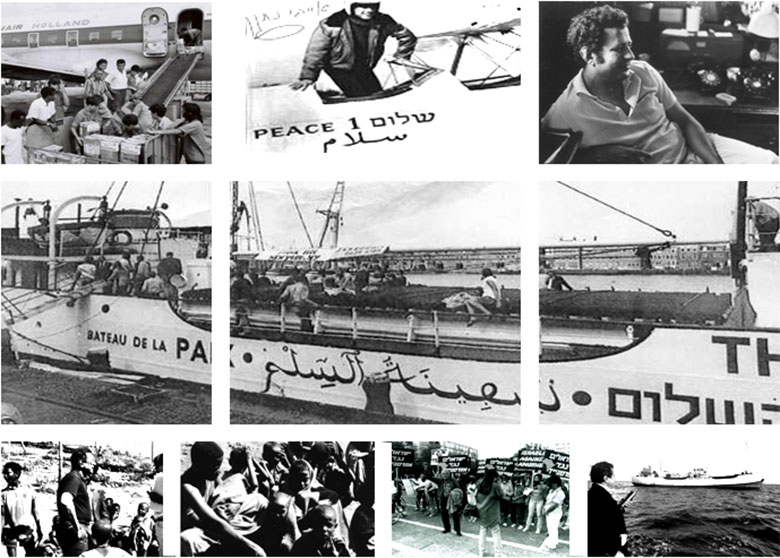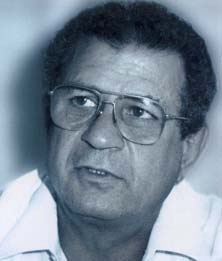

In 1965 he ran for the Knesset. Although he failed to be elected, he promised that should he gain pubic support he would fly to Egypt – then an enemy country – with a message of peace. Abie fulfilled his promised on the 28th February 1966 and returned two days later labeled a peace activist, by his supporters, and an excessive publicity seeker, by his critics. The flight, known as the “peace flight”, changed the course of his life. It was followed by peace missions to Europe, the United States and Russia. Many leaders refused to meet with what they saw as a “gimmick” but others took him more seriously including the Pope, Bertrand Russell and other cultural and spiritual leaders. Returning to Israel, he decided to dedicate his resources and energy to the advancement of peace and humanitarian aid for the needy.
For over thirty years, he spread his ideas, collecting money with the help of international organisations and set up refugee camps for the victims of earthquakes, hunger and war in South America, Africa, Cambodia and other countries. In Israel he contributed to many organisations in particular the Cancer Association, Ilan (Foundation for handicapped children), Yad Sarah (an Israel-wide network of volunteers aiding disabled, elderly, and housebound people) and many others. In 1967 he set up a radio station aimed at advancing peace in the Middle East. From 1973 till October 1993 the “Voice of Peace” broadcast messages of peace and love from the Mediterranean. From 1989 to 1992 Abie was engaged in a fight for repealing the law that banned meetings with the PLO, and met other heads of terrorist organisations in particular Yasser Arafat – as a result of which he was twice imprisoned.
In 1993, following the Oslo Peace Accord, he scuttled his ship and continued with his humanitarian work particularly in Africa. In 1997 while he was travelling to the United States to write his autobiography, he suffered a severe stroke that left him partially paralyzed.
Abie Nathan passed away on August 27, 2008.
top
